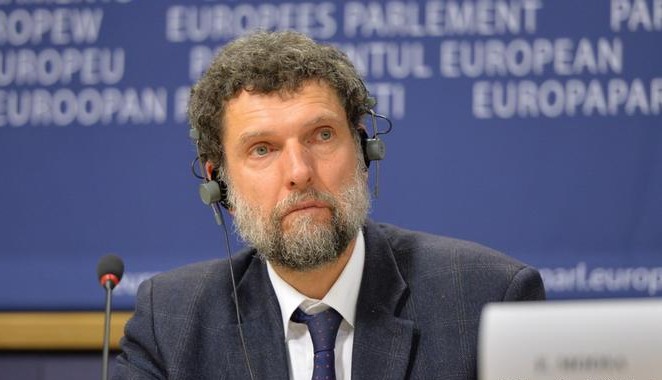The Council of Europe’s (CoE) Committee of Ministers has decided to consider “further measures” in the event that Turkish authorities fail to release jailed philanthropist Osman Kavala by September, local media reported on Thursday.
Kavala, who has been behind bars since October 18, 2017, despite a 2019 European Court of Human Rights (ECtHR) ruling that found his detention was in pursuance of an “ulterior motive,” that of silencing him as a human rights defender, was sentenced to aggravated life in April 2022 on charges of instigating the anti-government Gezi Park protests of 2013.
Turkey’s failure to implement the ECtHR judgment in the case of philanthropist Kavala, leading to the CoE launching infringement proceedings against Turkey in February 2022 due to its refusal to release him, marks only the second instance of such a procedure being initiated against a member state.
The committee, responsible for overseeing the implementation of judgments by the ECtHR, on Wednesday published the case-by-case decisions taken during its June 5-7 meeting.
The deputies “strongly exhorted” the Turkish authorities, including the judiciary, to ensure the immediate release of Kavala. They stated that they decided to consider what further measures are required in the event that the philanthropist has not been released by the committee’s 1,475th meeting in September.
The deputies once again underlined that Kavala remains in detention despite the Strasbourg court’s judgments, the repeated calls by the committee and the committee’s intensified engagement with the Turkish authorities at the highest levels including through its Liaison Group.
An anonymous official from the Council of Europe told Euronews that the committee’s decision, in terms of its language, is harsher than previous ones, suggesting that all options, including expulsion from CoE membership, may now be on the table for Ankara.
The Gezi Park demonstrations in 2013 were a response to the government’s attempt to destroy one of the few green spaces left in İstanbul, which quickly turned into a nationwide protest against the authoritarian policies of then-prime minister and current president Recep Tayyip Erdoğan.



